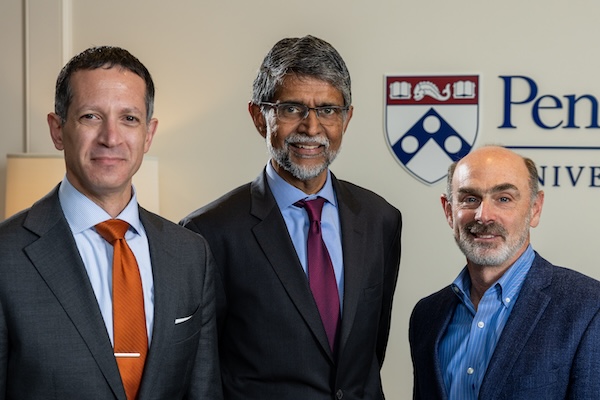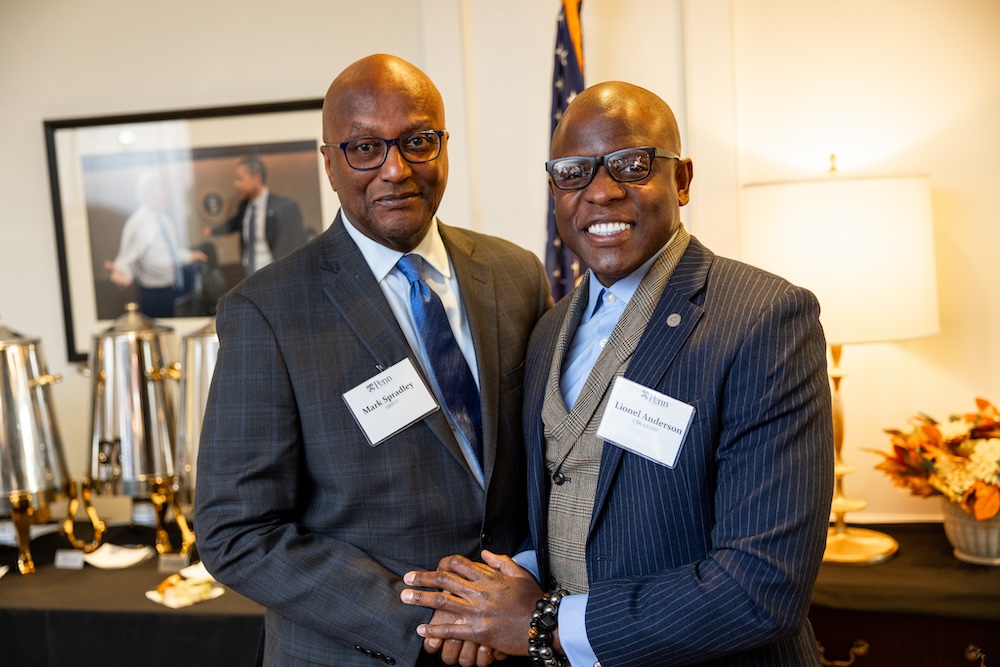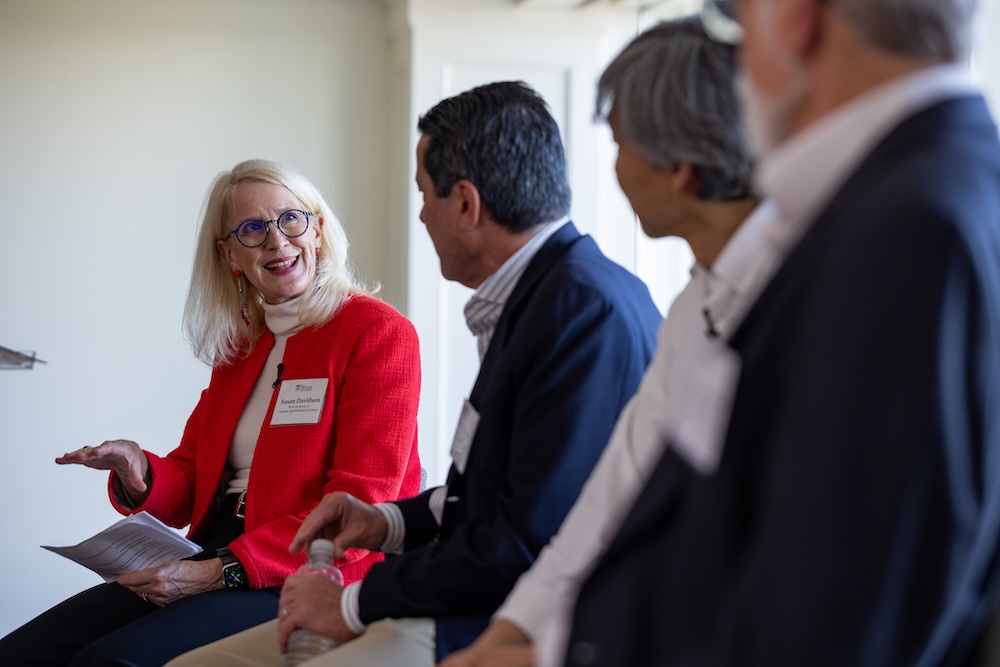
For Penn founder Benjamin Franklin, the purpose of innovation was to serve others. Whether inventing a more efficient stove, bifocal lenses or the first flexible catheter, Franklin thought about how his creations could tangibly improve living conditions and serve a higher purpose. “As we enjoy great advantages from the inventions of others,” he wrote in his Autobiography, “we should be glad of an opportunity to serve others by any invention of ours.”
On October 17, in Washington, D.C., Penn Engineering launched its new Responsible Innovation Initiative at an event co-sponsored by Perry World House and hosted by Penn Washington. “At Penn, our values reaffirm Benjamin Franklin’s vision of being open-minded and curious, inventive and practical, exhibiting brilliance across fields, imperfect but self-improving, and, above all, relentlessly focused on enhancing social good,” said Vijay Kumar, Nemirovsky Family Dean of Penn Engineering, in affirmation of the University Values statement.
Just this year, Kumar noted, Penn Engineering has already dedicated or will dedicate multiple new research spaces. The first, Amy Gutmann Hall, will serve as the University’s new hub for data science and artificial intelligence research and education. The National Science Foundation AI-enhanced RNA Foundry (NSF AIRFoundry) will bring together researchers from Penn Engineering and Penn Medicine, among other institutions, to break new ground in precision medicine and train a diverse new generation of researchers. And, in December, Penn Engineering and the School of Arts & Sciences will open the Vagelos Laboratory for Energy Sciences and Technology (VLEST). “If we want a technological future that is beneficial, equitable and just,” said Kumar, “we must elevate and innovate around those values from the start.”

The event drew Penn alumni, current students and friends of the University alike to hear Penn Engineering’s leadership and faculty describe some of the School’s latest research efforts, and the need to guide innovation to socially responsible ends.
Ted Schlein (W’86), a leading venture capitalist, cybersecurity expert and University Trustee, spoke about how he has seen the need for guardrails evolve from inside Silicon Valley. “It takes innovators, and it also takes legislators and, dare I say, sometimes, regulators,” he said. “So as we tackle society’s newest changes and challenges to try and leverage technology innovation, we owe it to ourselves and to our children to do it in a manner that’s responsible.”
Keynote speaker Michael Horowitz, Richard Perry Professor in Political Science and Director of Perry World House, who joined the U.S. Department of Defense in 2022, and who once co-taught a course with Kumar on the effect of emerging technologies on world affairs, described the importance of international collaboration in managing the impacts of potentially dangerous technologies. Recently, his office drafted the first international agreement on what constitutes responsible military use of artificial intelligence (AI) and autonomous systems. “That’s a really good start to responsible innovation,” he said.

Susan Davidson, Weiss Family Professor in Computer and Information Science (CIS), hosted a panel with Mark Yim, Asa Whitney Professor in Mechanical Engineering and Applied Mechanics (MEAM) and director of the General Robotics, Automation, Sensing and Perception (GRASP) Lab; Michael Kearns, National Center Professor of Management & Technology in CIS; and Dan Koditschek, Alfred Fitler Moore Professor in Electrical and Systems Engineering (ESE) and a core faculty member of the GRASP Lab.
The quartet discussed everything from the meaning of responsible innovation to the Community Collaboratory for Co-Creation (Penn4C), which recently brought together Penn Engineering and Penn Nursing to design, test and build cooling shelters for bus stops in Philadelphia. “We need the ethicists,” said Koditschek. “Collaboration among the humanities, the social sciences, engineering and science is essential for centering responsibility.”
Finally, George Pappas, UPS Foundation Professor of Transportation in ESE, in MEAM and in CIS, and Penn Engineering’s Associate Dean for Research, shared some of his group’s latest work on the dangers posed by AI-enabled robots. “It is efforts like these that will continue to make Penn Engineering an invaluable partner as new technologies are deployed in the future,” Kumar said.
Learn more about Responsible Innovation
